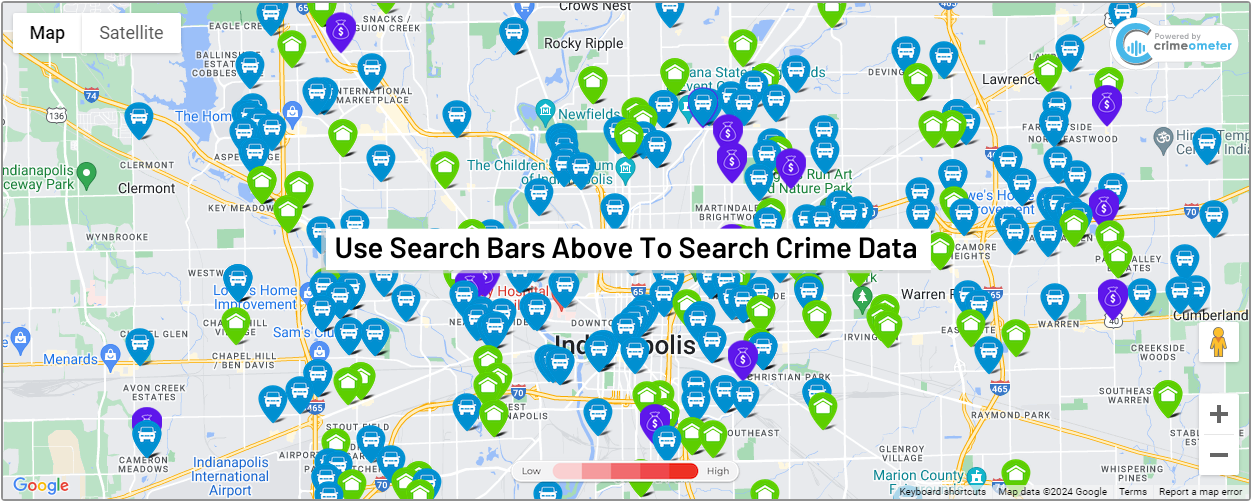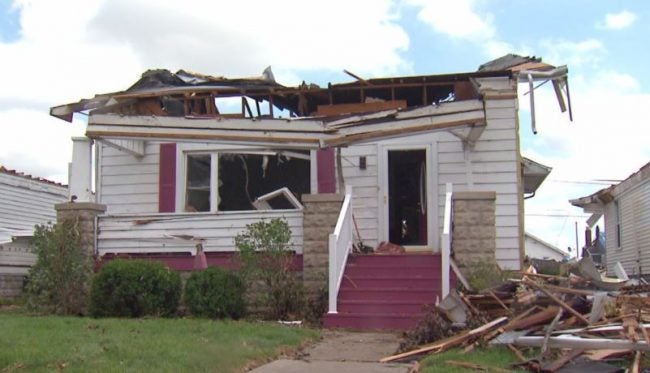Kokomo officials warn of storm repair fraud
KOKOMO, Ind. (WISH) — Kokomo authorities confirm the city has received at least one complaint related to alleged storm repair fraud.
According to the Howard County Sheriff, the county’s dispatch center received that complaint since Wednesday’s tornado outbreak in central Indiana.
The storms knocked out power to more than 10,000 people in Howard County. By Friday night, power had been restored to more than 6,000 of those residents
Residents interviewed by I-Team 8 said they had been approached by contractors they thought might be from out of state.
“They wanted to know about tree trimming,” Bobby Crull said of one contractor who approached him.
When I-team 8 approached that contractor, a man did not identify himself but said “we are from here.” The man was driving a truck with Ohio plates. When questioned about this, the man said: “We are from here, the truck is from Ohio.”
Neither the truck nor the trailer had any identifiable markings or signs listing the name of the business.
“You have to be careful when something like this happens, there is always scammers,” said Jake Guennell, a Kokomo resident who said his brother was approached by several contractors from out of state.
Crull said he knows many of them are legitimate, but that it’s always cogent to be cautious when dealing with restoration work.
The Indiana Attorney General’s Office said so far this year it has received more than 985 complaints related to alleged home improvement scams.
They provided this advice:
The Indiana Attorney General’s Office encourages people to follow the 10 tips below to avoid a home improvement scam:
• Do your research. Know how much you can afford and what you want done.
• Get multiple price quotes from different contractors.
• Check with the Better Business Bureau and the Attorney General’s Office to see if complaints have been filed against the contractor.
• Check to make sure the contractor is locally licensed, bonded and insured. A performance bond provides the most direct protection for the consumer. Bonds that cover municipal code compliance may be helpful but often do not offer direct refunds if you’re scammed. Your local building department or code enforcement departments are good resources to check.
• Ask the contractor for local references that you can contact directly to determine the quality and timeliness of the contractor’s work.
• Get a contract in writing that details what work is to be done and when it will be finished.
• If the contractor came to your door unsolicited, ensure you receive a notice from the contractor of your ability to cancel the contract within three days for a full refund before signing any contract.
• Never pay for the entire project before the work begins. Do not pay more than a third of the total cost as a down payment and make sure that any subsequent payments or “draws” correspond to definite, significant, and tangible job progress.
• Do not let a contractor convince you not to secure a permit when one is required. The permit process provides protections to ensure the contractor completes the job in compliance with local building and safety codes.
• Demand that the contractor obtain and let you inspect all permits required for your work, and do not be shy about checking with your local building department about whether a permit has been pulled. When in doubt, check with your local building department about whether a permit is required for the work you need.


